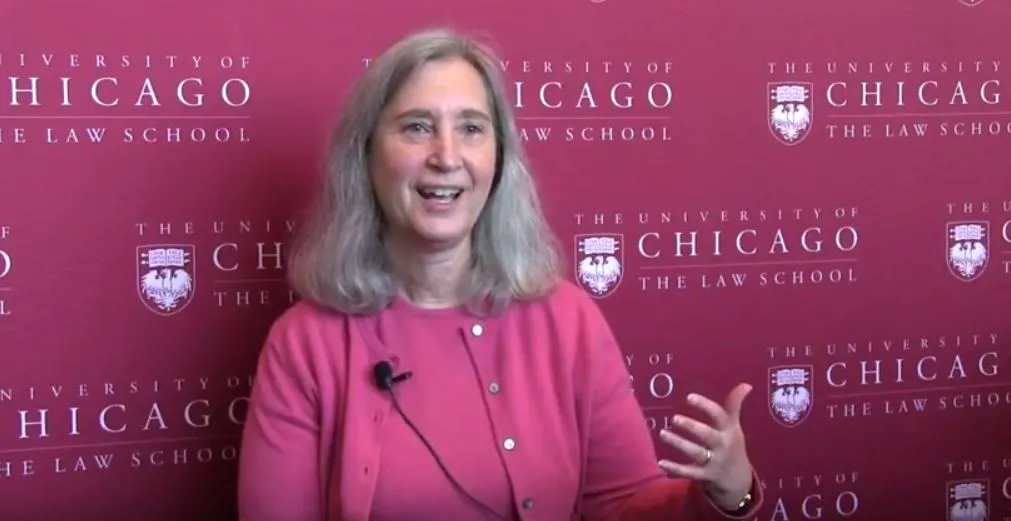My Chicago Law Moment: Nell Minow, ’77, on Why Movie Reviewing and Corporate Governance Aren’t So Different

If you’ve ever wondered how film critique is like corporate governance, just ask Nell Minow, ’77. She’s made successful careers out of both.
“I always say that both are just systems analysis,” said Minow, a leading expert on corporate governance and a movie critic who has been writing about media, culture, and values as “The Movie Mom” for more than 20 years. “Although my husband does say that I managed to find not one but two jobs where I do nothing but criticize people.”
Minow, a film buff who says her “passion for law is kind of a frolic and detour from my lifelong devotion to movies,” launched The Movie Mom, an online film review blog, in 1995. The endeavor led to a regular gig as Yahoo’s film critic for six years, as well as articles and regular columns in major publications across the country, a book, and more.
Meanwhile, Minow was also working to reform corporate America in a variety of roles—helping to improve corporate boards, advising shareholders, and tackling complex issues like executive compensation and corporate accountability. She authored more than 200 articles and co-authored three books, advised key government officials, and testified before Congress. She currently counsels investors on corporate governance as the vice chair of ValueEdge Advisors.
Both passions, she said, are about figuring out why things fail or succeed.
“I was always really interested in why things don’t work that everybody wants to work,” she said. “Everyone wants a movie to work—there are a lot of people involved: the director, the producers, the cinematographers, the actors, the screenwriter. If it doesn’t work, it’s really interesting to think about why. The same thing is true in corporate governance. Everyone wants the corporation to make money: the employees, the investors, the executives. Everybody wants it to work, and if it doesn’t work, it’s really interesting to think about why.”
Minow built much of her movie expertise before law school, as an avid consumer of films and a critic for school papers; she even studied film for a year in college.
During Law School, Minow developed the skills she’d eventually apply to her corporate career. She honed her way of looking at the world, whether it was learning economic analysis or thinking through complex constitutional issues.
“Geof Stone had a class that was really transformative for me,” she said. “He made up a set of legal problems, and then we as a group had to write Supreme Court-type decisions about them. I thought that would be fun because they’re all made up. But he really boxed you in. The first one seemed easy— and then the next one you had to go (and maybe rethink) that first one. It really taught me a lot about the process and the way the law builds up over time. I thought that was just great.”
A comparative law class framed her thinking not because of what it taught her about foreign law, but because it sharpened her focus on American law.
And law and economics made an impact that is still evident in her argumentation today.
“I once was on PBS, on a news show, debating corporate governance issues, and the commentators said I sounded like a socialist,” she said. “And I said, ‘No, I went to the University of Chicago—I’m as free market as you can get.’ That really stopped him cold. I love using economic arguments, I love using the market-based arguments that I learned here.”
My Chicago Law Moment is a series highlighting the Law School ideas and experiences that continue to resonate after graduation. Video produced by Will Anderson.
